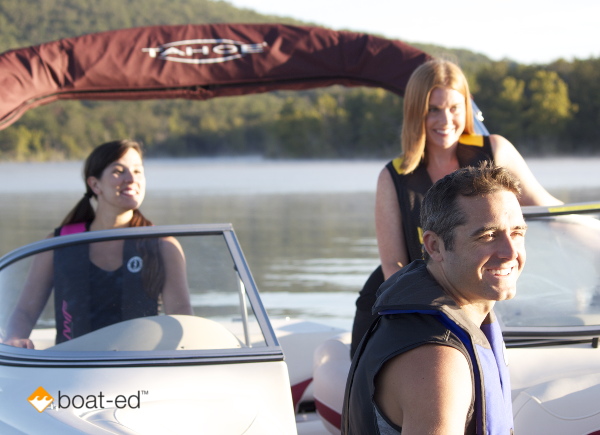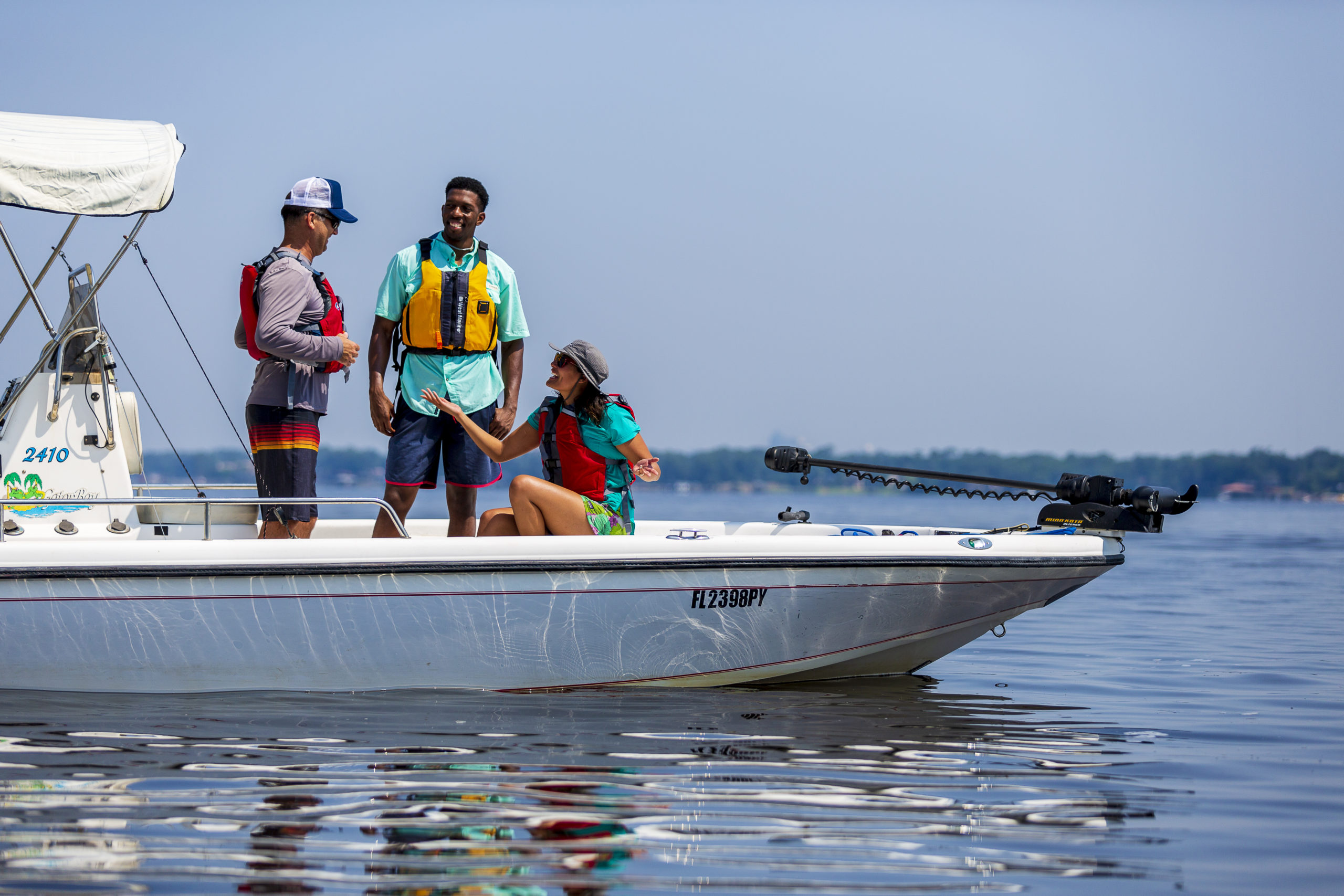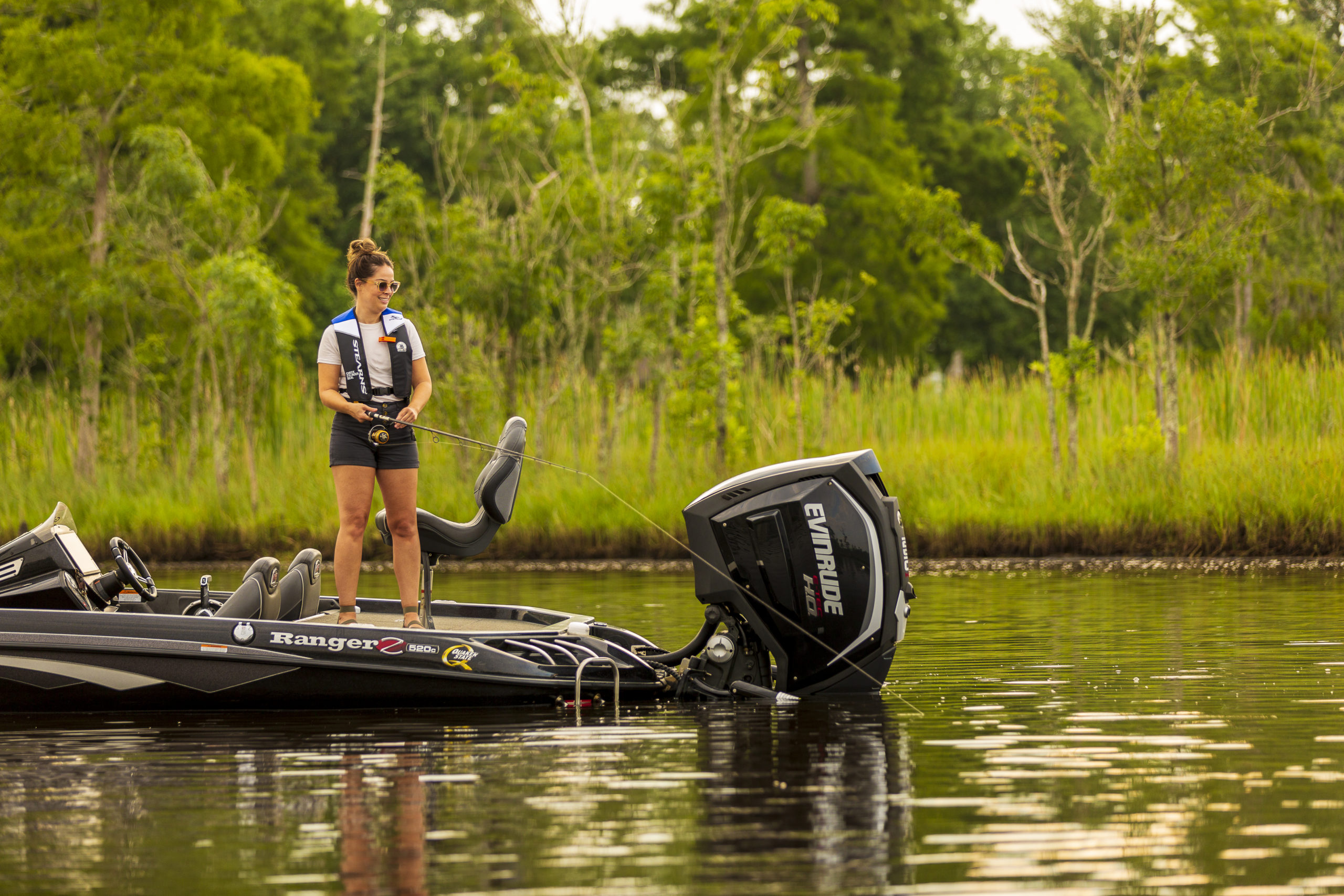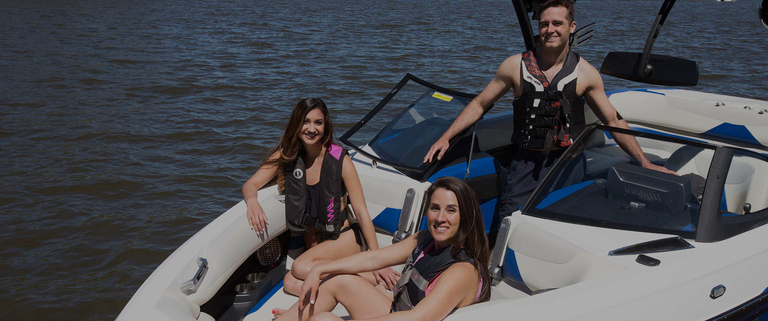10 Essential Boating Safety Tips

In a report published in 2023, the U.S. Coast Guard reported 4,040 boating incidents that resulted in 636 deaths, 2,222 injuries, and about $63 million in property damage in 2022. 74% of the deaths occurred on boats where operators did not have boating safety instruction, with operator inexperience being one of the top contributing factors in reported boating accidents.
This data supports something responsible boaters already know: boating safety saves lives. Before you hit the water this season, ensure you are well-educated and properly geared up for your next water excursion.
Boating safety is a concern for everyone on the water. Even if you're not required to pass a boater safety course in your state, boater safety is the responsibility of everyone on the water. Keep you and your passengers safe by learning about responsible boat etiquette, safe operation, and the rules of the waterways.
Whether you've passed a boater safety course or not, to help you avoid being a boating accident statistic this season, follow the ten essential boating safety tips we discuss today in this resource.

Boat Safety Applies to Anyone, Any Time of the Year
For everyone in the boating industry, safety extends beyond just one week. However, we also support the annual nationally recognized week, where boaters, businesses, and organizations collectively push to draw attention to boating safety.
If you're not familiar with it, National Safe Boating Week is organized by the National Safe Boating Council. Its mission is to "advance and promote safer recreational boating experience through education, outreach, and training."
Pledge Your Allegiance to Safety
This year, the designated boating safety awareness week takes place May 18-24, 2024. Activities include the Wear It campaign, where boaters can pledge to wear a life jacket when boating or fishing. Every year, participation in this event grows!

10 Essential Tips to Stay Safe On a Boat
Before, during, and after National Safe Boating Week, safety must come first on the water with these ten tips.
1. Check-in With Someone
Checking in with friends and family members before you leave is extremely important – especially if you like to boat alone. Take safety a step further by creating a Float Plan with the details of your trip and leaving that with a trusted person.
A Float Plan lets someone know where you plan to boat, the dates or times of day you plan to be on the water, who you're with, contact information for friends on the boat with you, and notes the safety equipment you have on board.
2. Watch for Wildlife in the Water
Remember that the water is home to many different species of wildlife. Respect the environment and their habitat so we can continue to enjoy it for future generations.

3. Educate Your Peers
Safe boating starts on land by educating your friends and family members. If someone is old enough to operate a boat, encourage them to take their boater education course from a NASBLA-approved provider (like Boat-Ed) before getting on the water with you.
4. Stay Alert
With more people on the water, it's even more critical that you stay alert.
The excitement and adrenaline of spawning season can cause boaters to lose focus temporarily. However, driver inattention is one of the biggest causes of boating accidents. So, while you're waiting for a bite, make sure you keep an eye on other boaters as well.
There are great tools to provide you with the skills and knowledge to feel confident, have fun, and stay safe on the water!
For example, Wavve Boating includes dynamic nautical charts that automatically update to current tides and water levels, a seven-day weather forecast, crowdsourced information, and more to help new boaters stay safe as they transition from online learning to the water.
When you complete a boating education course through Boat-Ed, you get a one-year Free Trial of Wavve Boating! With your safety education and Wavve, you're ready to hit the water and stay safe this season.
5. Never Skip the Pre-Launch Checklist
If you don't have a pre-launch checklist, it's time to get one. No matter how sharp your memory is, it's easy to forget the little things like checking the bilge or making sure the drain plug is in.
Every time you plan to hit the water, take the extra time to do a quick diagnostic test before you launch your boat.
6. Maintain Safety for All Ages
Safe boating doesn't only apply to adults. It's a family affair that applies to everyone aboard, regardless of age.
As the primary boat owner or operator, it's crucial to make sure everyone understands how to be safe on a boat – and enforce the rules of safe boating. Set a good example and help everyone on the boat safely enjoy a day on the water.

7. Understand Safety for Nighttime Boating
You never know when you'll need the skills to help you navigate at night. With less visibility, you need to understand the signals you're sending and receiving from other boats more than ever.
Operating a boat in the dark is very different than being on the water in the daylight. Your boat education course covers nighttime safety and equipment requirements for boating at night.
8. Practice Good Fire Safety
A fire on a boat is a critical safety issue. Without acting quickly with the right equipment, your boat could become a significant hazard, forcing everyone into the water to avoid burns or causing injuries.
A fire extinguisher is required boating equipment, but just having it on your boat isn't enough. Know how to use it before you need it to fight a fire that starts on the boat.
9. Wear Life Jackets
Choosing not to wear your life jacket can change your life forever. Don't second guess it – just wear it – and make sure everyone on the boat wears one, too.
Depending on the activities taking place during your boat outing, it's crucial to have the right type of life jacket. It's also crucial that each person's life jacket fits them well.
Not all life jackets are made equal. Some are made for specific water activities, while others are ideal depending on how far you are from shore.
Additionally, as you'll learn in a boat education course, only purchase life jackets approved by the U.S. Coast Guard. Any other lifejackets may not function properly to keep you afloat in an emergency. Get your high-quality life jackets before your next outdoor adventure.
10. Have the Right Equipment
In addition to lifejackets and fire extinguishers, your boat needs the right safety equipment every time you take it on the water. Your boat needs the right lights, a distress signal, docking and anchoring equipment, a radio, and more.
A Safety Equipment Checklist can help you confirm your boat has everything it needs before launch.
Stay Safe on the Water With Boat-Ed
Keep these ten safety tips in mind every time you go out on the water this season! You can also help friends and family stay safe by recommending an online safety course before boating season begins.
Find and select the appropriate state, then take the online course. These courses are easy and convenient to take from anywhere! With a safety certification, it's easier to enjoy boating season and avoid accidents. Happy, safe boating!
Originally published June 3, 2014. Content updated February 12, 2024.


